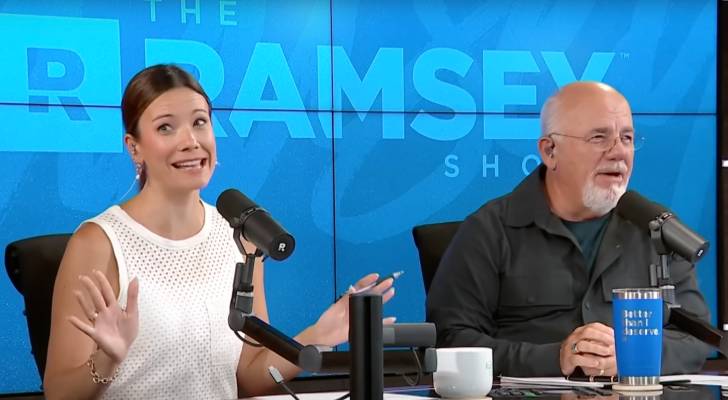Denise and her husband earn $150K a year, have no debt, and have built a sizable retirement fund — so why does money still feel tight?
With seven kids to raise, this Tennessee mom called into The Ramsey Show [1] to get the experts’ take on her financial situation.
“We paid everything off first, and then we had kids. And so we have a sizable retirement fund, and it just feels very strange to still be… in a situation where my husband’s getting upset about money when we’re supposed to be doing that well on paper,” Denise said. She goes on to say that she thinks groceries and insurance expenses are straining their budget.
When Denise asked if they could ever “save too much,” Dave Ramsey believes the real problem wasn’t the savings; it was the lack of planning. “You’re throwing money in savings and hoping you can live with what’s left over, and when chaos hits, you dip back into the savings,” Ramsey said.
When Ramsey dug deeper into Denise’s situation, he discovered that the couple doesn’t have a solid budget set up, which is a big reason for the stress and “chaos” every month.
Having a budget is critical, especially with the unpredictable financial landscape of today. Inflation continues to cut down consumers’ purchasing power, making everyday essentials like food, gas, and utilities more expensive than they were even a year ago. In 2025, U.S. inflation is projected to go up by 3.1% according to the Congressional Budget Office [2]. This means that for many families, like Denise’s, every dollar needs to stretch even further.
A recent Lending Tree survey showed that many Americans have changed their grocery and dining out habits, reporting that 44% are buying more generic brands and 61% are stressed about being able to afford groceries [3].
At the same time, higher interest rates mean credit card balances, mortgages, and auto loans are more expensive to carry. Having debt and not having a budget in place means more stress.
Creating and following a budget gives you control over your finances. It helps families see exactly where their money is going and where it can be adjusted. Budgets also force people to focus on priorities like figuring out true needs from wants and making sure to pay off debts first.
Read more: There’s still a 35% chance of a recession hitting the American economy this year — protect your retirement savings with these 10 essential money moves ASAP
Whether or not you have seven kids, the first thing that families can do is start tracking their spending for a month or two, using statements or apps. This way, you’ll have a clear picture of where your money is going.
Here are some practical budgeting tips:
Zero-based budgeting. Give every dollar a purpose, putting your income towards expenses, savings, or paying off debt.
Envelope system. Help control spending by using cash for categories like groceries and entertainment, and keeping a set amount in envelopes.
Buy in bulk. Stock up on non-perishable items in bulk to take advantage of lower unit prices.
Meal planning. Figure out your meals based on what’s on sale and seasonal produce to minimize food waste and costs.
Shop discount. Visit discount stores like Costco for lower-priced groceries.
Review insurance regularly. Shop around for better rates or consider higher deductibles to lower your premiums.
Use Health Savings Accounts (HSAs). Contribute to HSAs to save on medical expenses with tax advantages.
By putting every dollar to work, Ramsey assured Denise her family could not only cover expenses but also save aggressively and find relief from financial stress. For countless families like hers, budgeting isn’t just about math — it’s the secret weapon to taking back control of your money.
Join 200,000+ readers and get Moneywise’s best stories and exclusive interviews first — clear insights curated and delivered weekly. Subscribe now.
At Moneywise, we consider it our responsibility to produce accurate and trustworthy content people can rely on to inform their financial decisions. We rely on vetted sources such as government data, financial records and expert interviews and highlight credible third-party reporting when appropriate.
We are committed to transparency and accountability, correcting errors openly and adhering to the best practices of the journalism industry. For more details, see our editorial ethics and guidelines.
[1]. YouTube. “You don’t have a plan”
[2]. Congressional Budget Office. “CBO’s current view of the economy from 2025 to 2028”
[3]. Lending Tree. “88% say they’ve changed grocery shopping habits due to inflation — Here’s how”
This article provides information only and should not be construed as advice. It is provided without warranty of any kind.

